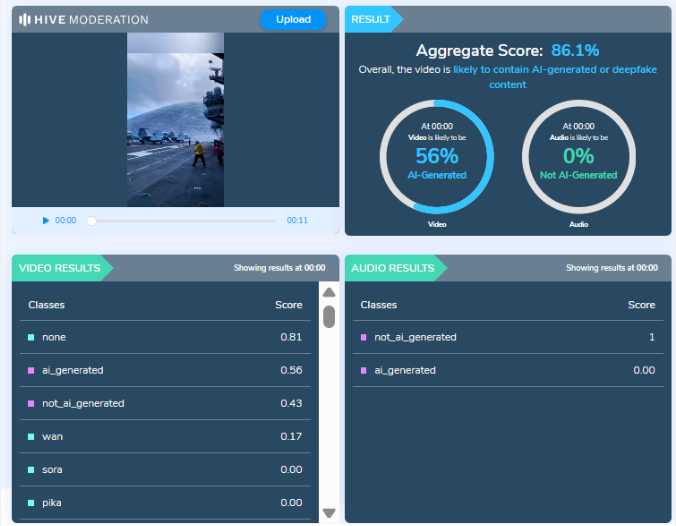UN Global Principles for Information Integrity
Introduction
The United Nations (UN) has unveiled a set of principles, known as the 'Global Principles for Information Integrity', to combat the spread of online misinformation, disinformation, and hate speech. These guidelines aim to address the widespread harm caused by false information on digital platforms. The UN's Global Principles are based on five core principles: social trust and resilience, independent, free, and pluralistic media, healthy incentives, transparency and research, and public empowerment. The UN chief emphasized that the threats to information integrity are not new but are now spreading at unprecedented speeds due to digital platforms and artificial intelligence technologies.
These principles aim to enhance global cooperation in order to create a safer online environment. It was further highlighted that the spread of misinformation, disinformation, hate speech, and other risks in the information environment poses threats to democracy, human rights, climate action, and public health. This impact is intensified by the emergence of rapidly advancing Artificial Intelligence Technology (AI tech) that poses a growing threat to vulnerable groups in information environments.
The Highlights of Key Principles
- Societal Trust and Resilience: Trust in information sources and the ability and resilience to handle disruptions are critical for maintaining information integrity. Both are at risk from state and non-state actors exploiting the information ecosystem.
- Healthy Incentives: Current business models reliant on targeted advertising threaten information integrity. The complex, opaque nature of digital advertising benefits large tech companies and it requires reforms to ensure transparency and accountability.
- Public Empowerment: People require the capability to manage their online interactions, the availability of varied and trustworthy information, and the capacity to make informed decisions. Media and digital literacy are crucial, particularly for marginalized populations.
- Independent, Free, and Pluralistic Media: A free press supports democracy by fostering informed discourse, holding power accountable, and safeguarding human rights. Journalists must operate safely and freely, with access to diverse news sources.
- Transparency and research: Technology companies must be transparent about how information is propagated and how personal data is used. Research and privacy-preserving data access should be encouraged to address information integrity gaps while protecting those investigating and reporting on these issues.
Stakeholders Called for Action
Stakeholders, including technology companies, AI actors, advertisers, media, researchers, civil society organizations, state and political actors, and the UN, have been called to take action under the UN Global Principles for Information Integrity. These principles should be used to build and participate in broad cross-sector coalitions that bring together diverse expertise from civil society, academia, media, government, and the international private sector, focussing on capacity-building and meaningful youth engagement through dedicated advisory groups. Additionally, collaboration is required to develop multi-stakeholder action plans at regional, national, and local levels, engaging communities in grassroots initiatives and ensuring that youth are fully and meaningfully involved in the process.
Implementation and Monitoring
To effectively implement the UN Global Principles at large requires developing a multi-stakeholder action plan at various levels such as at the regional, national, and local levels. These plans should be informed and created by advice and counsel from an extensive range of communities including any of the grassroots initiatives having a deep understanding of regional challenges and their specific needs. Monitoring and evaluation are also regarded as essential components of the implementation process. Regular assessments of the progress, combined with the flexibility to adapt strategies as needed, will help ensure that the principles are effectively translated into practice.
Challenges and Considerations
Implementing these Global Principles of the UN will have certain challenges. The complexities that the digital landscape faces with the rapid pace of technological revamp, and alterations in the diversity of cultural and political contexts all present significant hurdles. Furthermore, the efforts to combat misinformation must be balanced with protecting fundamental rights, including the right to freedom of expression and privacy. Addressing these challenges to counter informational integrity will require continuous and ongoing collaboration with constant dialogue among stakeholders towards a commitment to innovation and continuous learning. It is also important to recognise and address the power imbalance within the information ecosystem, ensuring that all voices are heard and that any person, specifically, the marginalised communities is not cast aside.
Conclusion
The UN Global Principles for Online Misinformation and Information Integrity provide a comprehensive framework for addressing the critical challenges that are present while facing information integrity today. Advocating and promoting societal trust, healthy incentives, public empowerment, independent media, and transparency, these principles offer a passage towards a more resilient and trustworthy digital environment. The future success of these principles depends upon the collaborative efforts of all stakeholders, working together to safeguard the integrity of information for everyone.
References
- https://www.business-standard.com/world-news/un-unveils-global-principles-to-combat-online-misinformation-hate-speech-124062500317_1.html
- https://www.un.org/sustainabledevelopment/blog/2024/06/global-principles-information-integrity-launch/
- https://www.un.org/sites/un2.un.org/files/un-global-principles-for-information-integrity-en.pdf
- https://www.un.org/en/content/common-agenda-report/assets/pdf/Common_Agenda_Report_English.pdf







